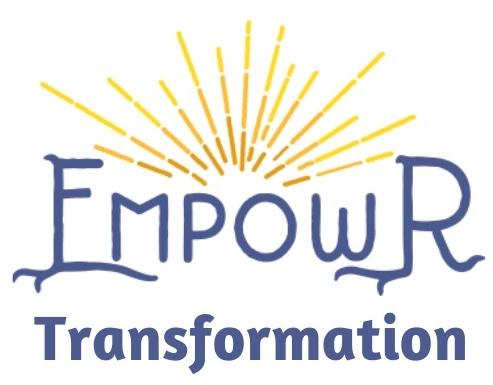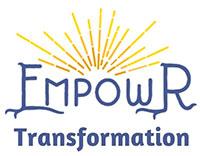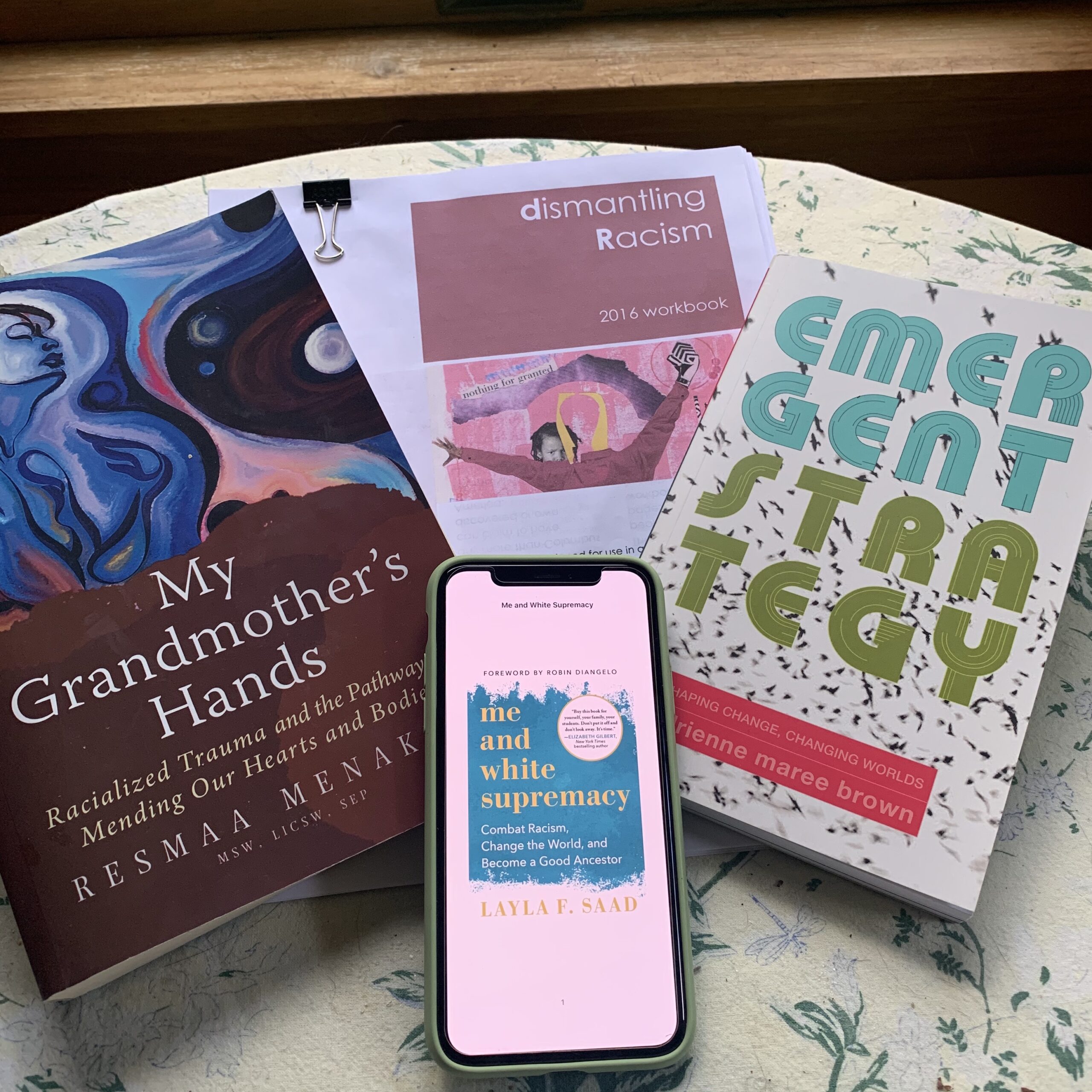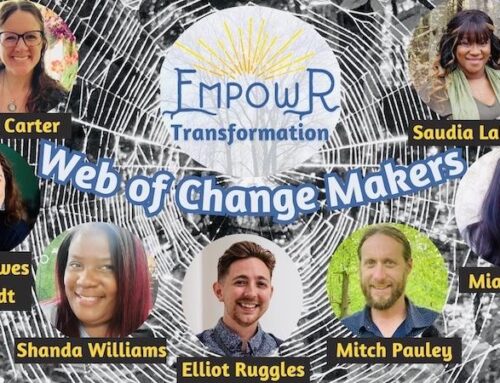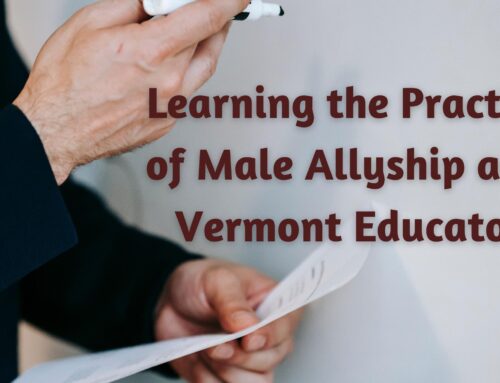This summer has been one of listening to BIPOC (Black, Indigenous, and People of Color) voices and feeling how racism unintentionally manifests in my thoughts and behaviors. White centering, saviorism, exceptionalism, and optical ally-ship are some of the behaviors I need to be mindful of and how they can show up as micro aggressions which hurts people with non-white skin, even if that is not my intention. I recognize the journey to become anti-racist is a lifelong one because being a white person raised in this country, I am inflicted with the racism virus. It is in our DNA from the hundreds of years of oppressor trauma that lives in our bodies.
I feel it is my responsibility to our shared humanity to heal this trauma in myself, and to support other white people in “doing the work.” The work calls for altering our perspectives and behaviors which, at the root, requires healing our own trauma from being born into oppressor bloodlines. When white people listen to the lived experiences of Black and Brown skinned people we must learn how to feel our emotions and move them through and out of our bodies. In doing so, we also must hold ourselves accountable for how we emotionally respond or react to situations that make us uncomfortable. This is hard work and I struggle with it daily.
I am learning that by expanding my capacity for empathy in recognizing the intersectionality between systemic racism and the additional disparities of socio-economic class, gender, sexuality, disability, and health ability, I can lean into practicing ally-ship.
From first writing Healing the Oppression of Whiteness, summer has been one of deep listening and finding some new areas of clarity. My work to intentionally become anti-racist began in 2018 when I first became aware of the detrimental health effects of the dominant, patriarchal, perfectionist, multi-tasking, frantic, rat race culture that burned me out of my head. It was during this time that I conducted a root cause analysis of my cancer diagnosis and interconnected dis-eases—tracing the root cause back to the toxicity of white dominant culture, patriarchy, and capitalism. Awakening to the vast inequities in healthcare, spiritual bypassing in Earth-based spirituality, and cultural appropriation in the “green lifestyle” further propelled unlearning and relearning as I’ve explored what it means to decolonize my heart, mind, and relationship to the land.
It was not until the rise of the Black Lives Matter movement this spring that I made the connection that the dominant, patriarchal modern society aka “the status quo” aka “normal life” are all other words for white supremacy culture and that racism and capitalism are interdependent. We all live in the culture of white dominance and it’s the very root of the majority of suffering in this country.
By liberating Black lives, Indigenous lives, and all other Brown-skinned lives, we will also liberate white lives inflicted with other expressions of injustice–this is the true path to freedom. And it begins with listening and feeling so we can find our way back to ourselves.
I invite my white friends, family, clients, and colleagues to give it a try and know that ALL the feelings that come up for you are valid, which is why it can be helpful for us to do this work together–we need to be able to process what we are feeling and talk about what we are are unlearning and relearning together. It’s important for white people to be in relationship and in community with each other in this exploration and not cause further harm to BIPOCS as we experience the unravel. It’s not only okay for people with different skin colors to have safe “affinity” spaces with people from their same skin color group, it’s an integral part of the healing process.
I suggest the following four resources as ways to engage in the anti-racism journey–all with different entry-points depending on where you might be at:
- Me and White Supremacy by Layla Saad – this is an excellent introduction to help build an understanding of white supremacy culture and how we operate in it. It includes journaling which helps you listen to your own inner voices as well as to Layla’s. I listened to this in a audiobook–my first time reading an audiobook and I found listening to Layla’s vocal inflections as a very holistic way to hear her voice. I read Me and White Supremacy as a part of a book group with the board and staff at Vermont Businesses for Social Responsibility – VBSR (I serve on the board) to help guide our own personal changes before we begin to focus on anti-racism efforts at the organizational level.
- My Grandmother’s Hands by Resmaa Menakem – this book really gets into unpacking the trauma of the oppressed, the oppressor, and law enforcement trauma and how it lives in different bodies based on their ancestral experiences. I feel that the perspective offered in My Grandmother’s Hands is essential to understanding racism, and, for white people, can help us see the bigger picture and draw the connections to the familial trauma we need to heal–the stuff we pass down from family member to family member–whether it be abuse, apathy, behavioral conditioning, or many of the other traits that are carried in our DNA and how all of these expressions contribute to racism at both conscious and unconscious levels. This book also helps provide an understanding to the complexity of policing and I pray that every law enforcement officer and staff person read this book with an open heart.
- DismantlingRacism.org – for all of the white people and white organizations who are trying to figure out how to actually “Dismantle Racism” and are stuck between only wanting to get advice from BIPOCS and inventing their own ways of doing the work, this website has the most comprehensive compilation of resources created by BIPOCS and allies working on anti-racism efforts for more than 20 years and it is updated regularly. Part of white supremacy culture is that we want to invent and be recognized for good ideas and innovations. When it comes to dismantling racism, there are so many resources and this website is the best “clearinghouse of information” I have come across (in any area). From politics to education, the resources are easy to find and access as you take some time to explore the site. The homepage is a great place to start where a two day anti-racism workshop that was taught for years around the country is packed into a workbook easily accessible as a collection of links. Of considerable interest to me was the White Supremacy Culture section–so much of what I recognized as the downfalls of “dominant society” during my own root cause analysis and healing–these cultural behaviors are detrimental to ALL of us who live beyond access to the white ruling class (always recognizing that white people have access to privilege, regardless of other social indicators, that black and brown people do not have based on the historical hierarchy of skin color).
- Emergent Strategy by adrienne maree brown – for those working in organizational culture and leadership, this is a must read. Emergent Strategy decolonizes leadership and maps out the path for leadership in this new era. This is a powerful guidebook for change makers to find solid ground in what we feel in our hearts and know in our minds as the path towards unity, resilience, equity, justice, and stability for all members of society. Emergent Strategy provides the framework, direction, and how to facilitate cultural transformation.
And facilitating cultural transformation circles me back to the beginning of this article and my own personal healing journey as the premise is the same–to change the world, we first must change ourselves. We may feel so overwhelmed and scared right now and that’s okay. At the same tine we can also feel empowered if we can surrender this grip on control and recognize that the ripple effect of attending to our own healing, is how we can be in integrity to our shared humanity. From my experience so far on this journey of how to end racism, learning how to both listen and feel more deeply is an essential place to start.
Please consider beginning or building upon your journey to become anti-racist and please reach out to me if you’d like to have a dialogue. I will mess up time and time again and I will keep coming back to the work and I hope you will too.
Learn more about EmpowR support sessions, facilitation services, and educational programs.
Please consider becoming an EmpowR Patreon to join our community of co-creating change!
